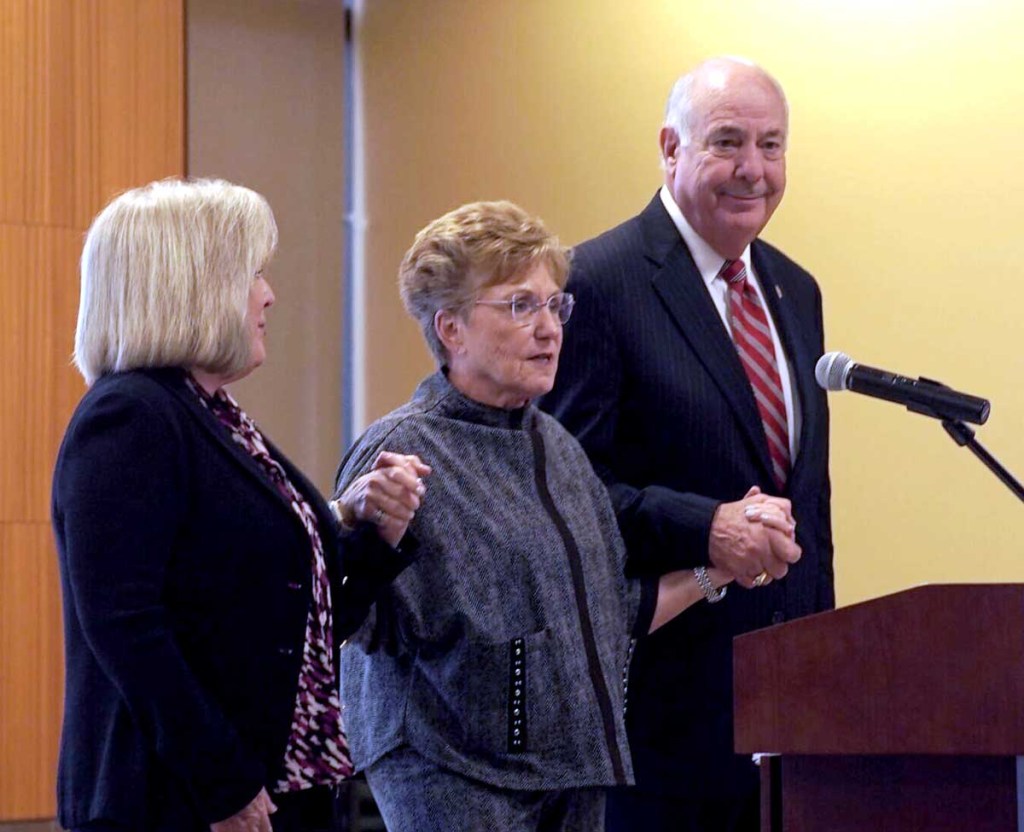WSCC official: Funding will build curriculum needed to develop workforce
Published 12:15 am Thursday, December 8, 2022

- ARC Federal Co-Chair Gayle Manchin, center, with Wallace State President Vicki Karolewics, left, and ADECA Director Kenneth Boswell.
HANCEVILLE — Leaders with the Appalachian Regional Commission (ARC) visited the Cullman Area Technology Academy and Wallace State Community College (WSCC) during their statewide tour of projects receiving ARC funding.
The federal economic development agency partners with local agencies to provide funding for projects that it feels, will help to strengthen economic growth within the 13 states that make up the Appalachia region.
Trending
Because of their location within rural areas and the flexibility to quickly create and implement new curriculums, ARC Federal Co-Chair Gayle Manchin said that institutions like WSCC were a fundamental component to help the agency achieve their goals.
“I personally think that the community colleges have never been more valuable than they are at this moment,” Manchin said. “[They] truly are the pipeline between our K-12 and our industry.”
This flexibility was highlighted by WSCC Grant Specialist Kristi Barnett, who said that after becoming aware of the automotive industry’s intentions to shift towards a more electrified fleet of vehicles, a $23,000 grant from the ARC enabled WSCC staff to be proactive and prepare for these changes in one of Alabama’s largest industry sectors.
“When Alabama lost coal, it recovered through the manufacturing and now automotive manufacturing is in danger of another industry disruption. Perhaps one of the smallest awards that you’ve made for $23,000 — I believe — enabled us to keep North Alabama safe and I’m so grateful. We used this money to hire a consulting firm to do an economic analysis of feasibility study and do focus groups with our automotive industry to talk about how electric vehicles were coming,” Barnett said.
WSCC Associate Dean of Applied Technologies Jerry Murcks said that another ARC grant of $1.2 million this year would now be used to develop the needed curriculum to develop a workforce that will be prepared for the future of the automotive industry.
“This grant allows Wallace to lead into the development of curriculum and the training of our faculty, which will in turn allow us to train technicians and automotive employers in the safety, maintenance, invention, and the repair of electric vehicles,” Murcks said. “It will also allow us to expand into the training of technicians in the installation of chargers for these electric vehicles.”
Trending
During her presentation, Manchin said if approved, 2023’s federal budget would see increases in funding to all local agencies like ARC that would be able to be dispersed across rural America.
“I think if we get a budget passed this year, we will have a strong budget going into 2023, but I think the President had a purpose. He understands the value of rural America and certainly the value of Appalachian region. But where much is given, much is expected, and so, I think that he wants us to think bigger and better,” Manchin said.
Manchin said that much like the coal that was mined from the Appalachian Mountains was used to create the steel that gave birth to the Industrial Revolution, the resources in the region would now be used to lead the way into another technological transition.
“I truly believe we built this country, and I think this region will continue to be a major part of the strength of this country as it transitions into new areas of energy. Not eliminating anything just transitioning and diversifying. We have the land, the water, the soil, coal, gas, wind, solar. We have it all and I think it’s up to us in this region to continue to make this country the super power that it’s always been.”


